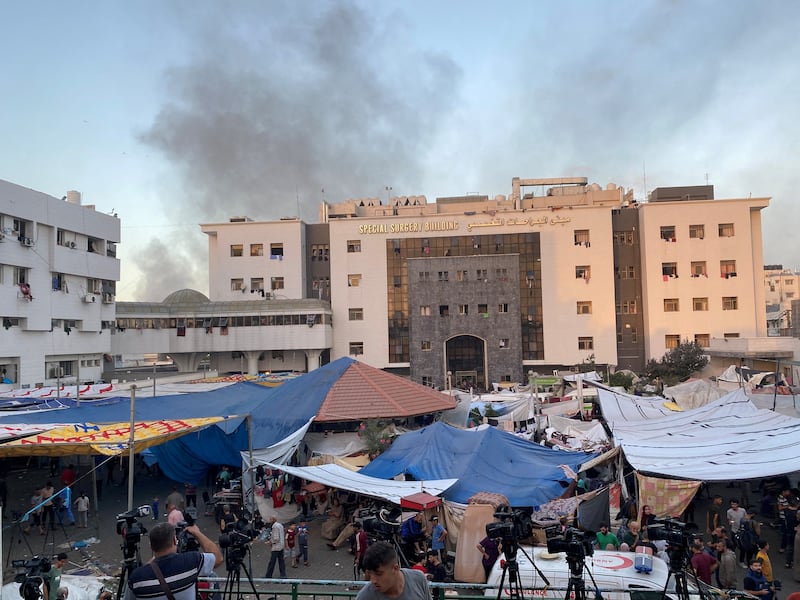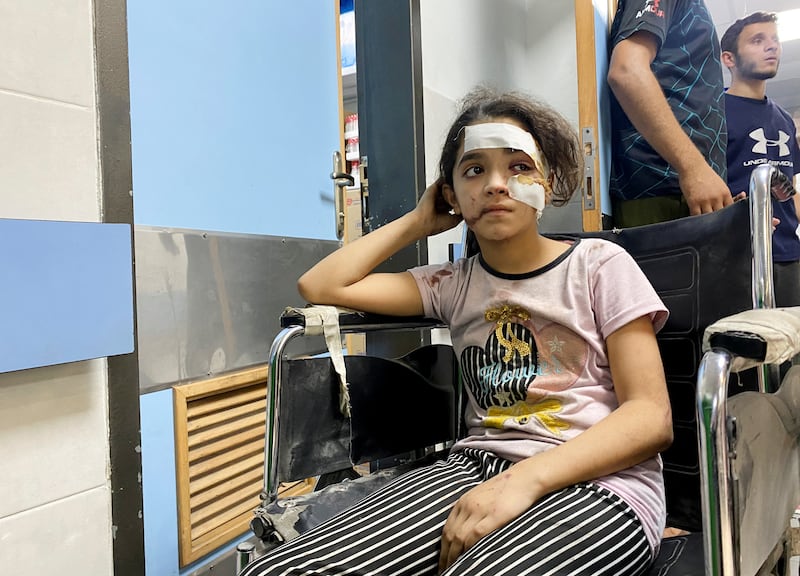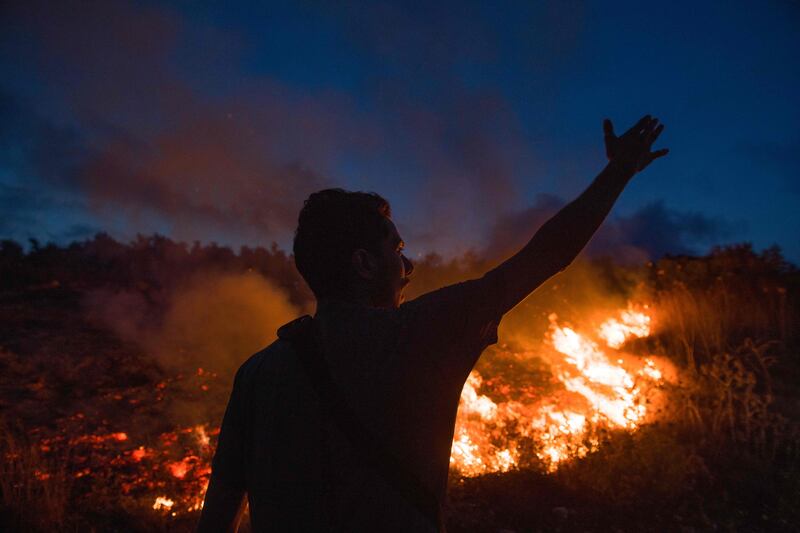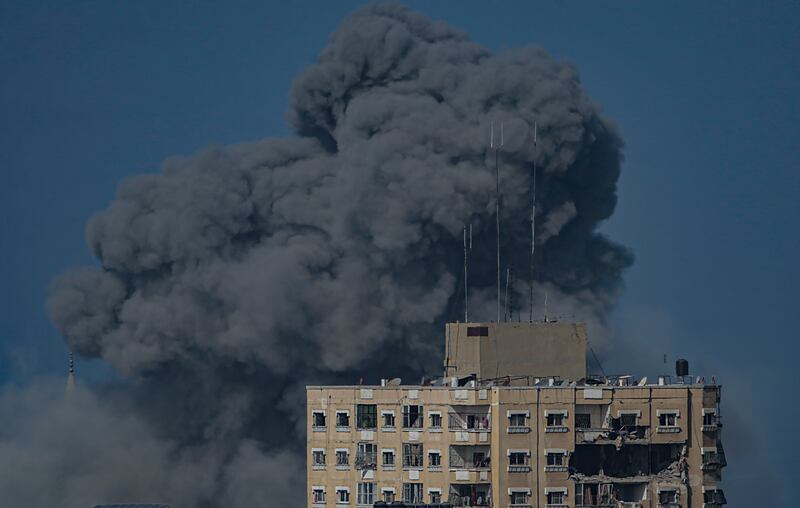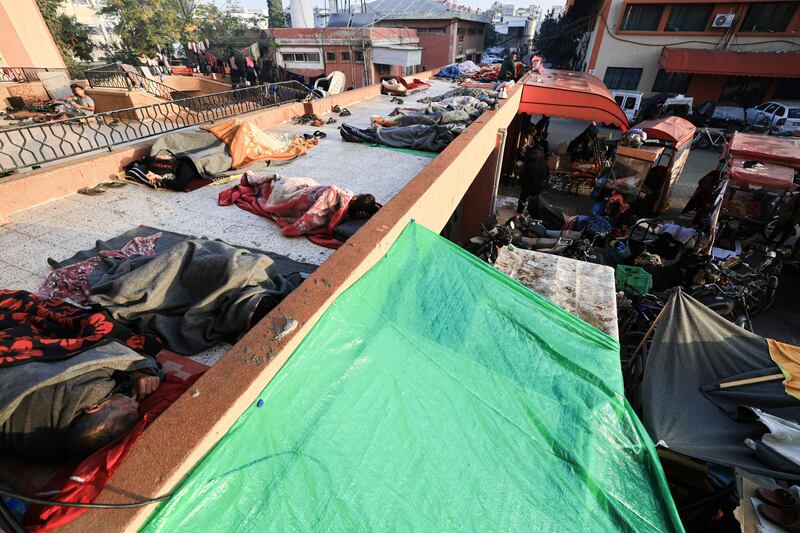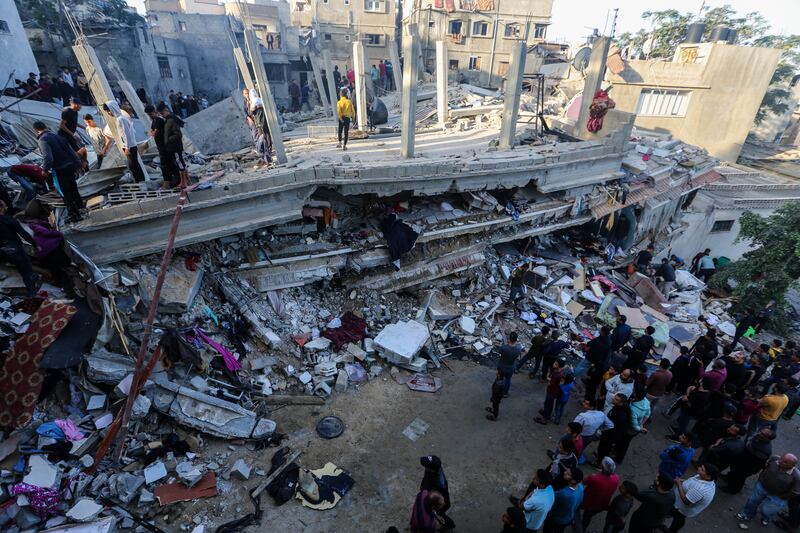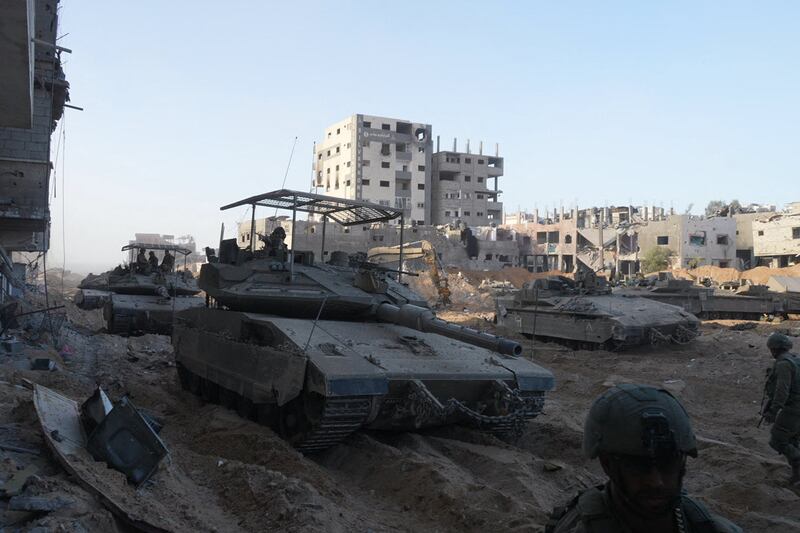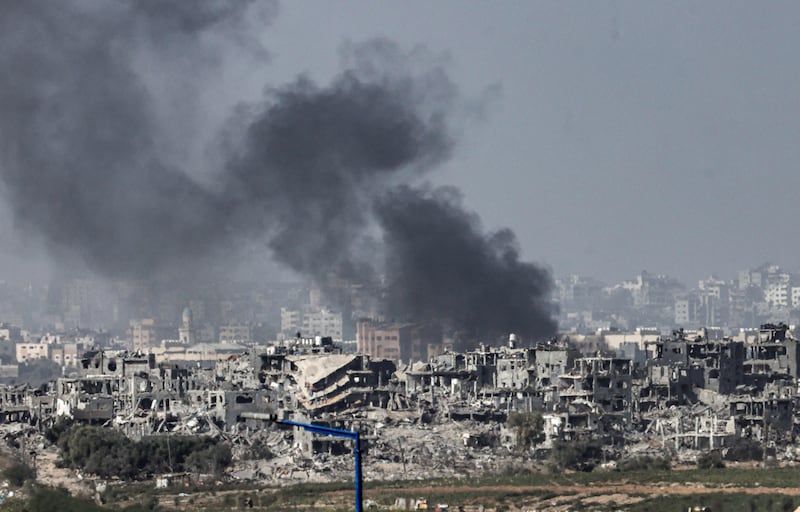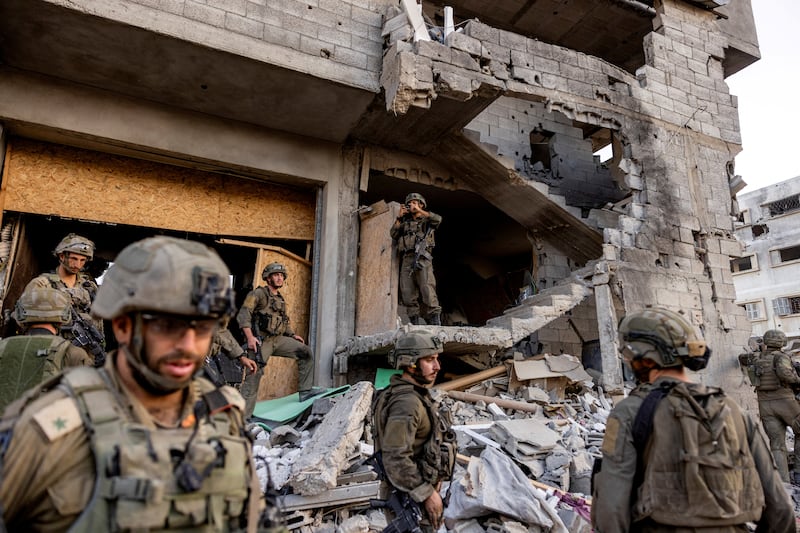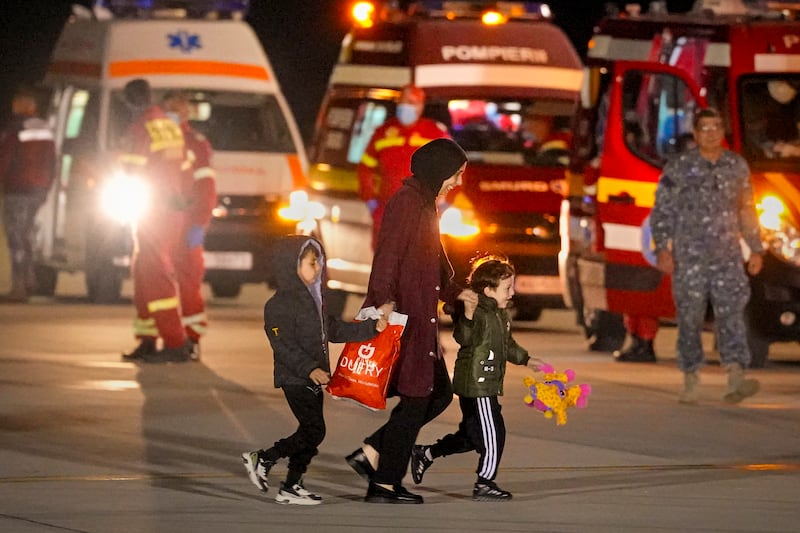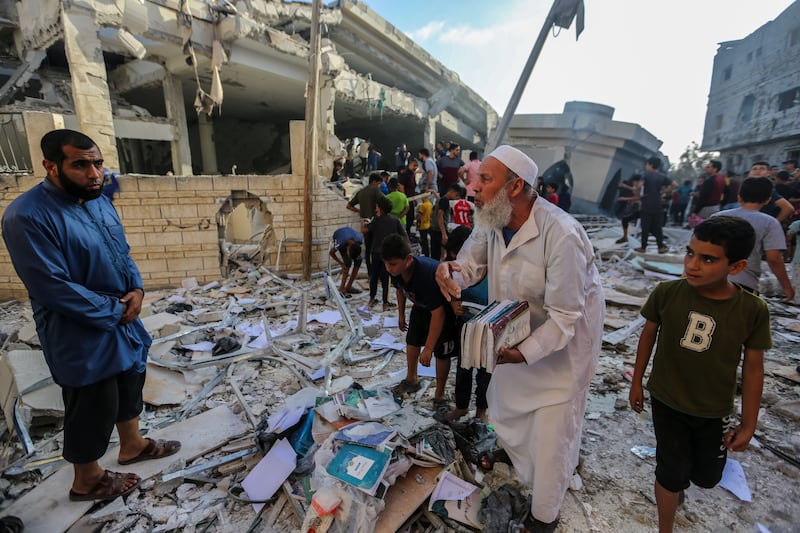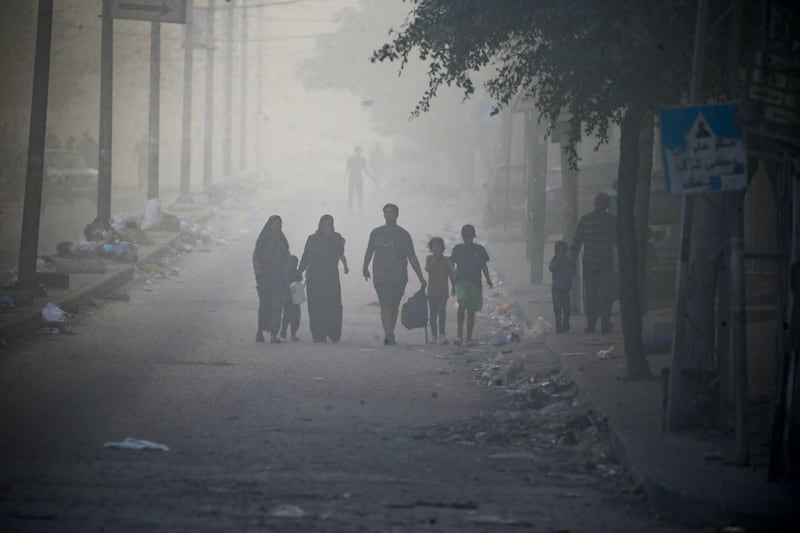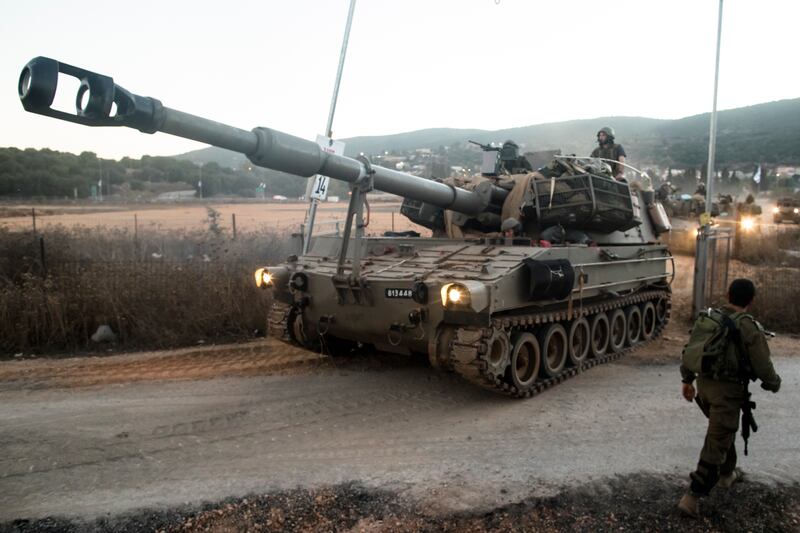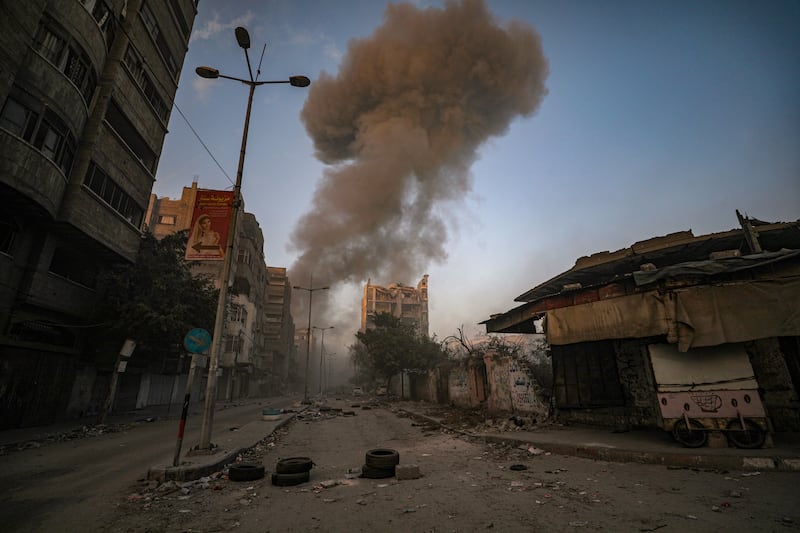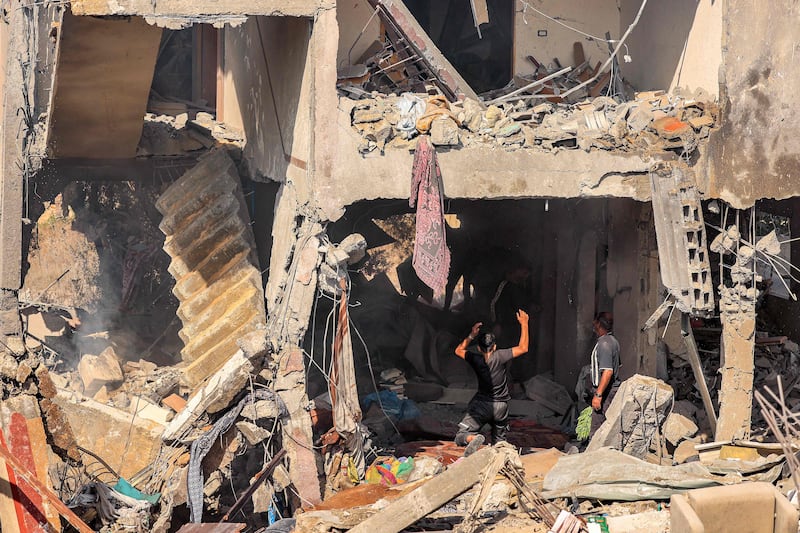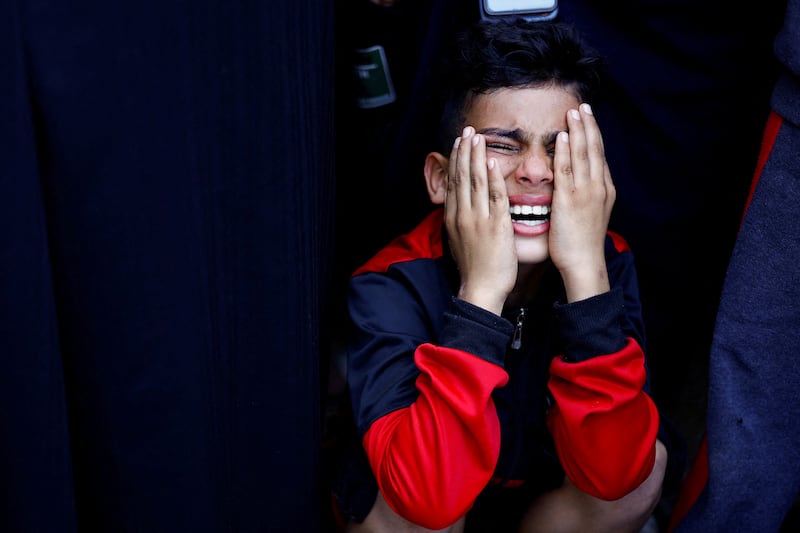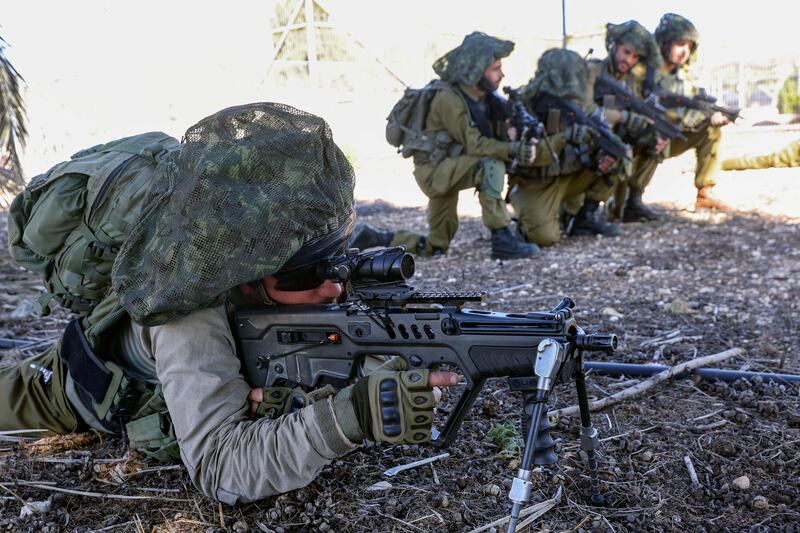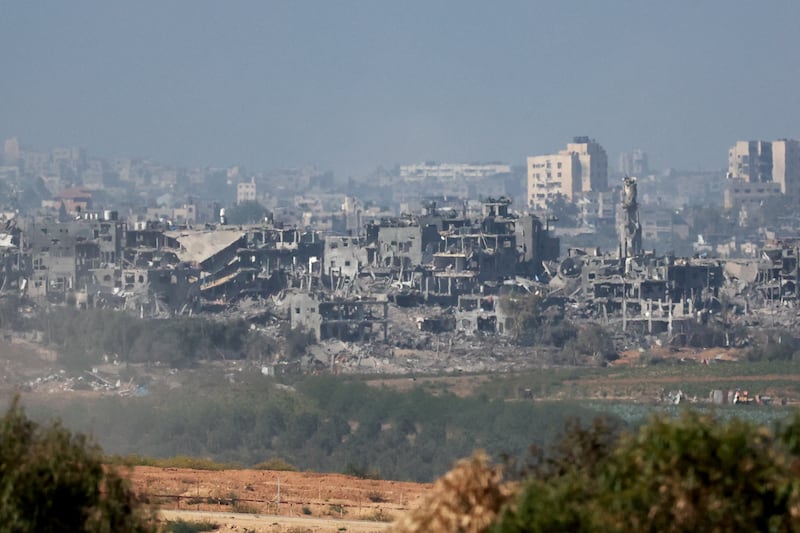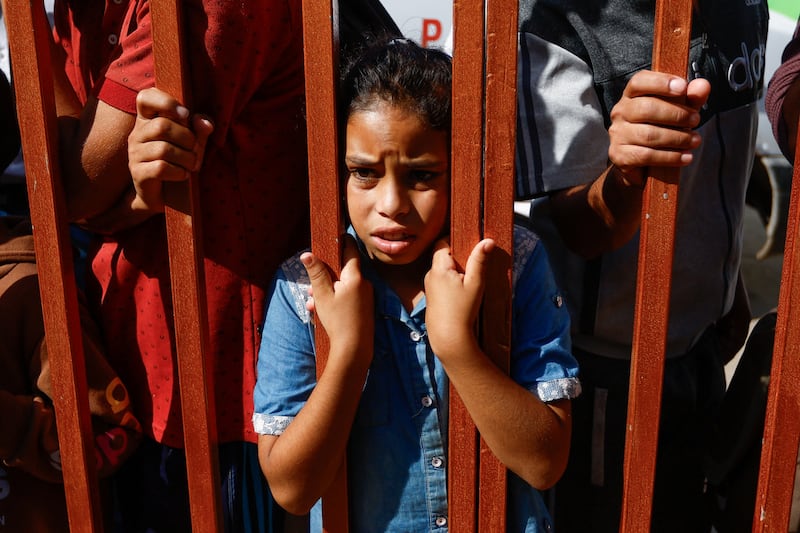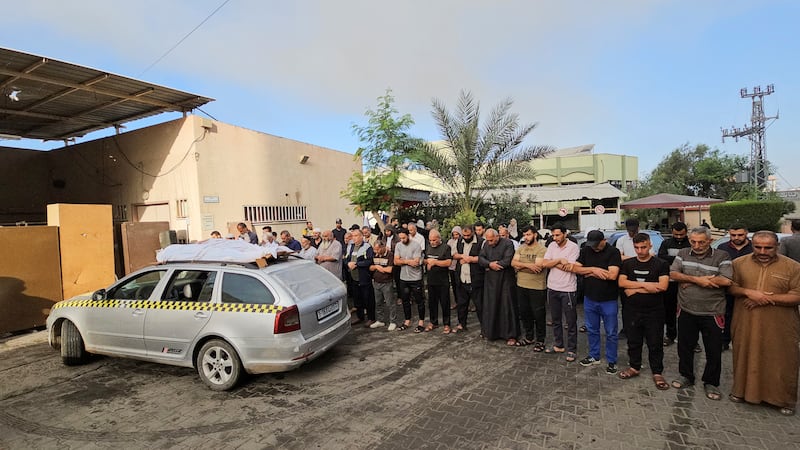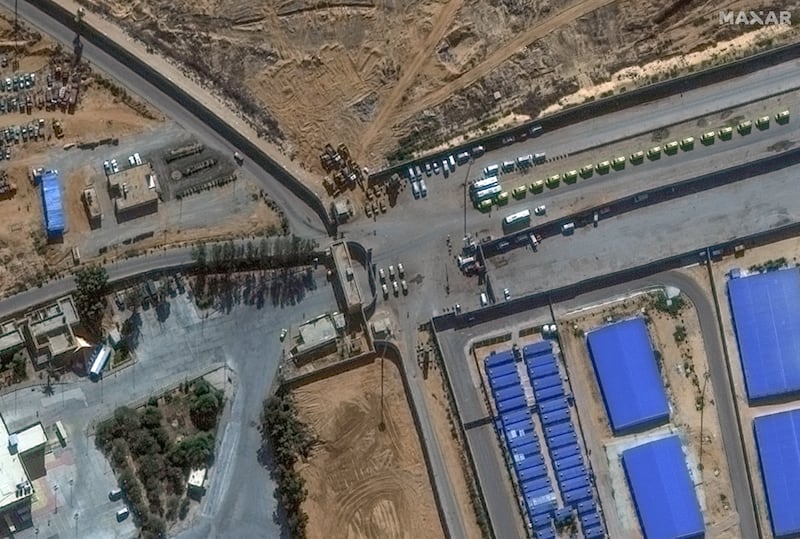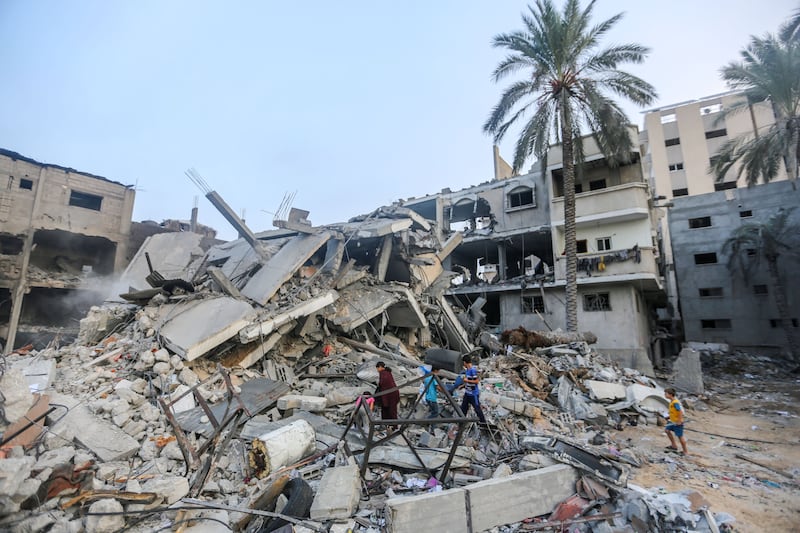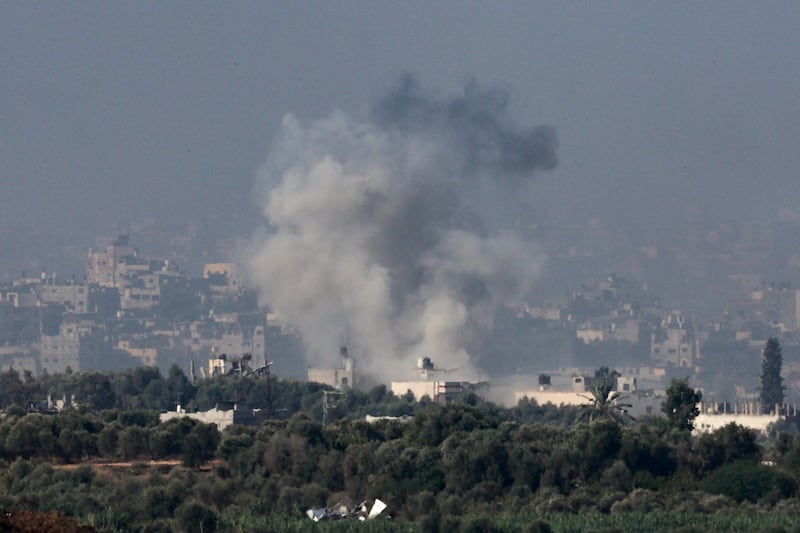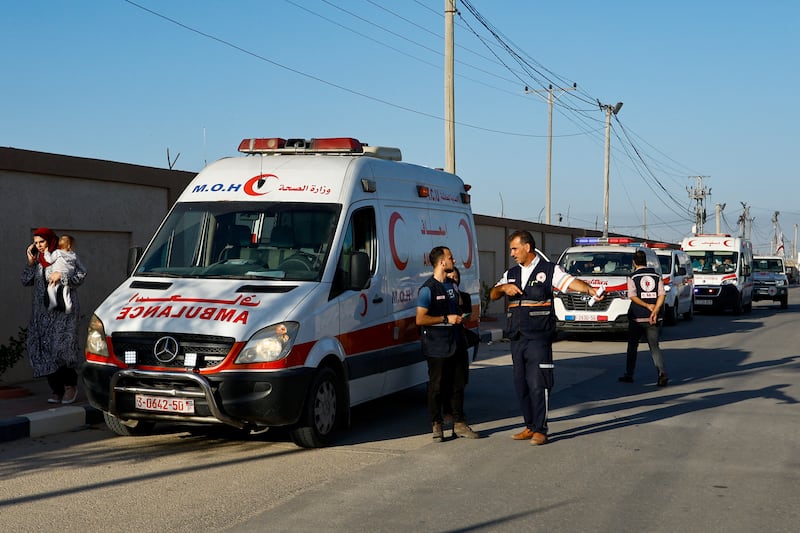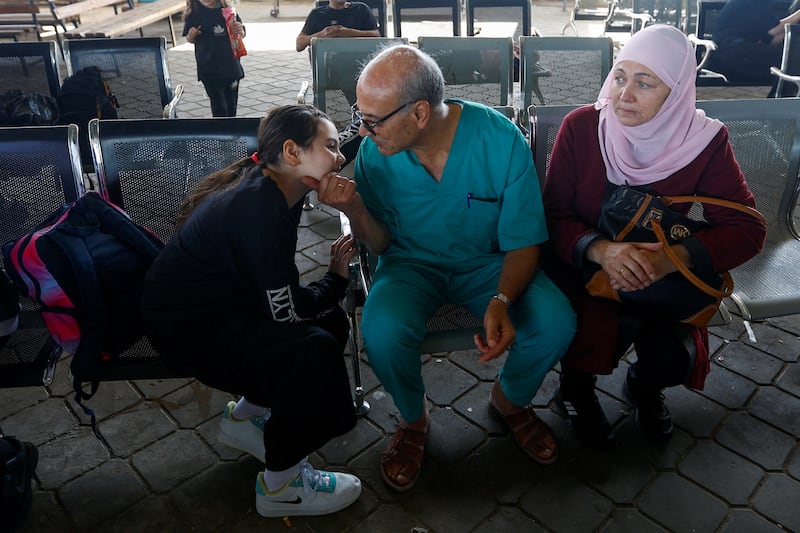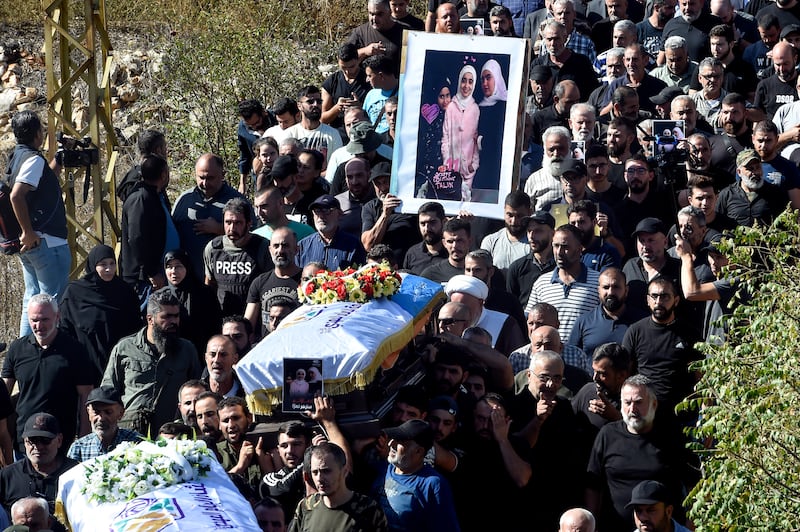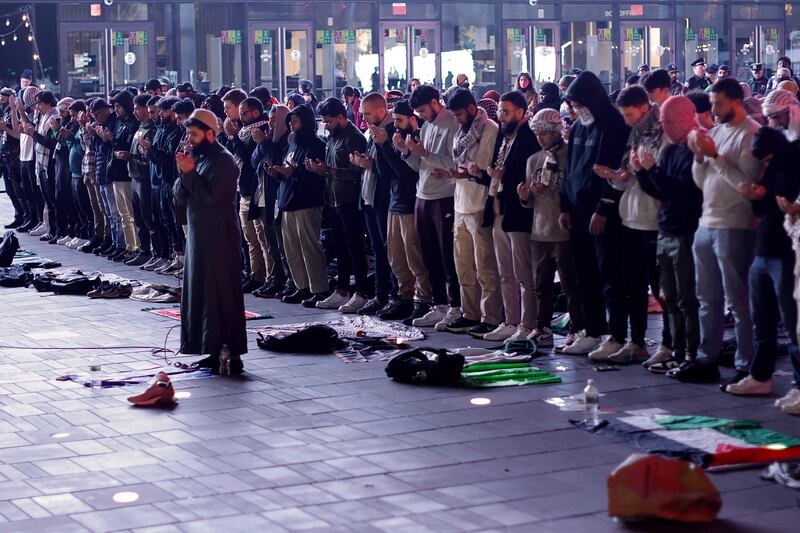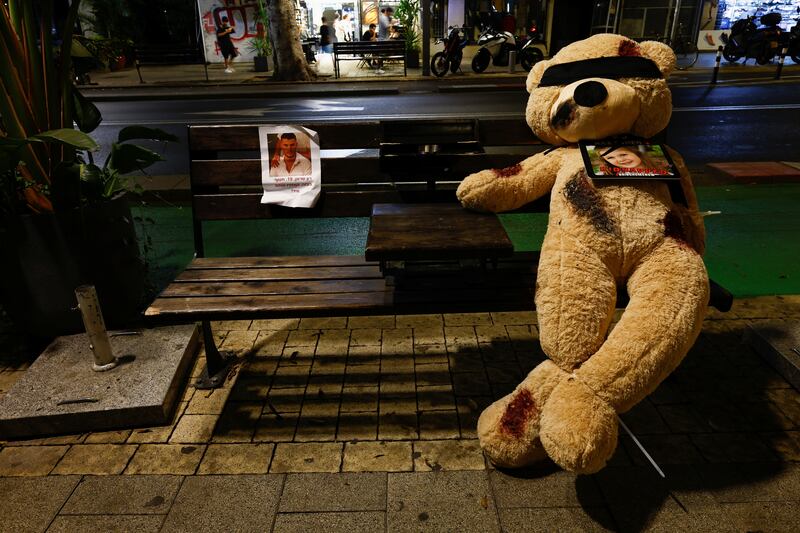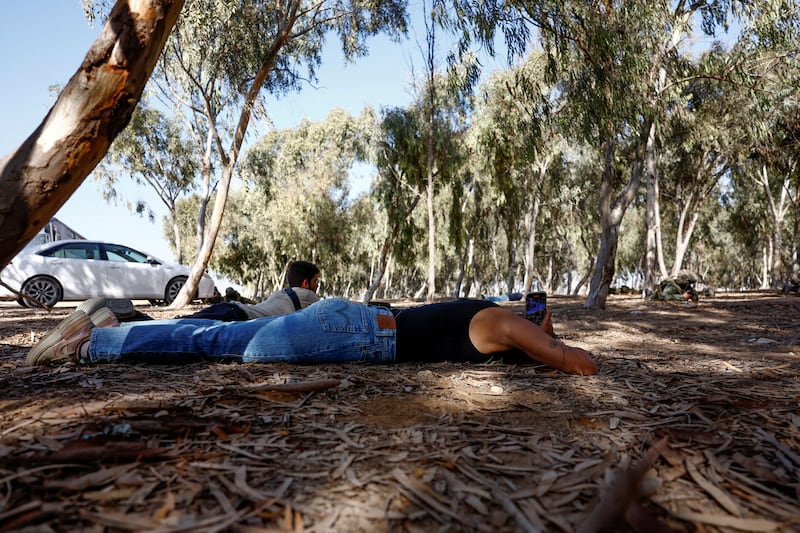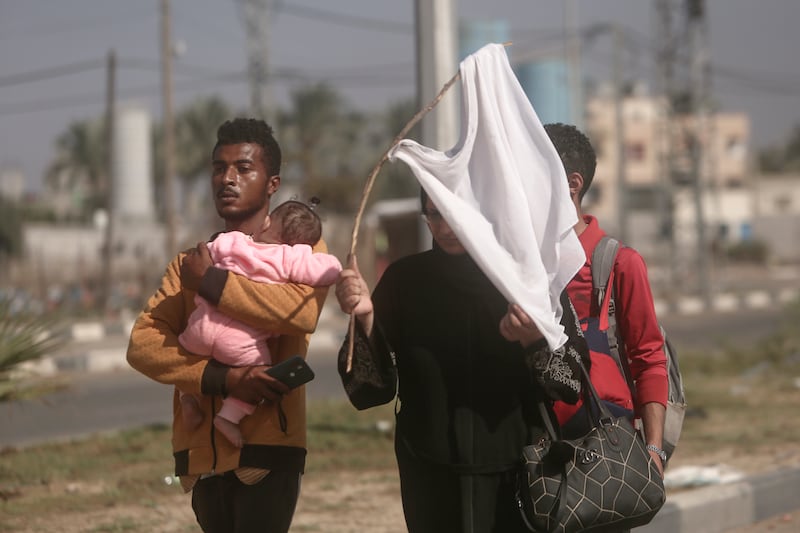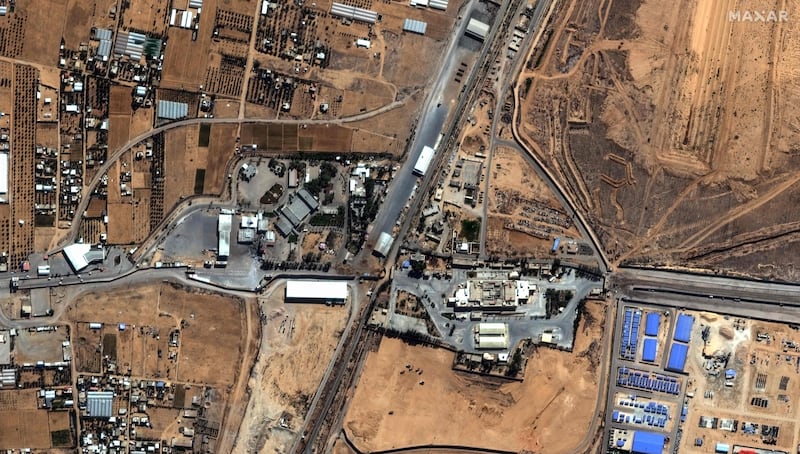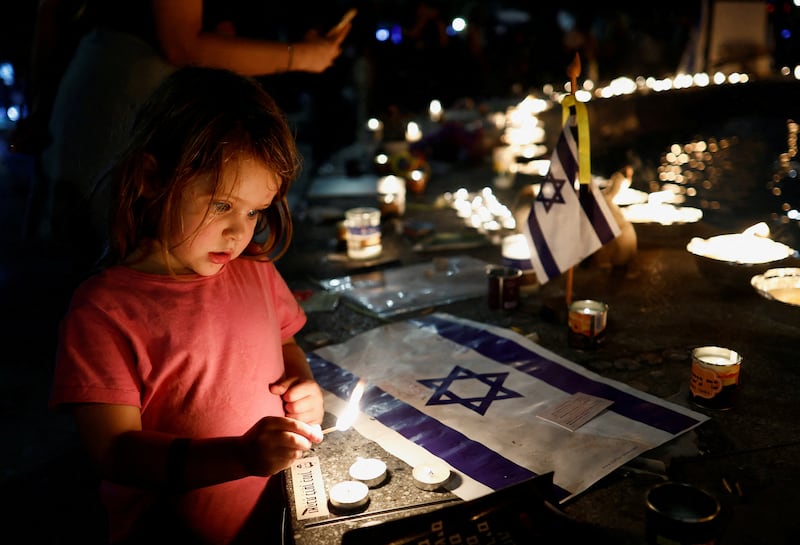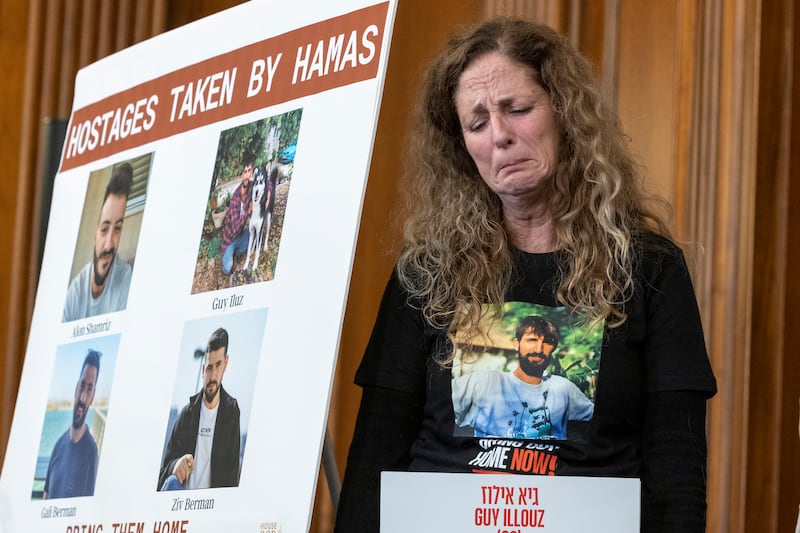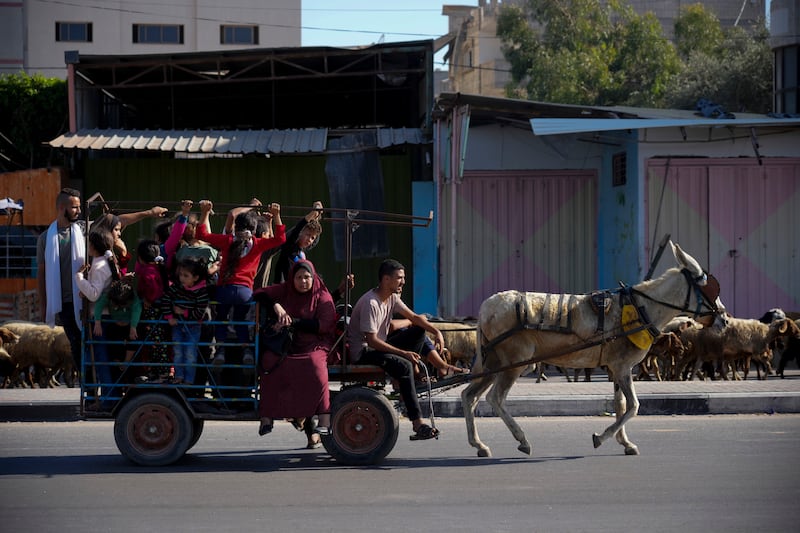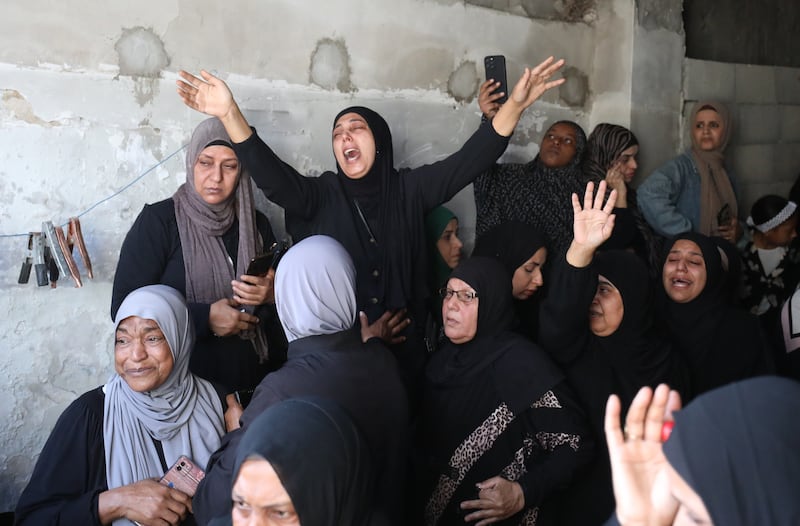Latest updates: Follow the latest news on Israel-Gaza
Barbara Leaf, the US assistant secretary of state for Near Eastern affairs, said on Wednesday that the Israel-Gaza war had stoked up public anger towards Israel and the US.
“I will say very candidly, this conflict has roiled up a huge amount of public anger towards Israel, towards us. This is something we're going to have to work through,” she told the House foreign affairs committee.
She spoke to the committee alongside the deputy assistant secretary of defence for the Middle East, Dana Stroul, at a hearing on support for Israel after the October 7 Hamas attack.
Ms Leaf also said that relations between Israel and its fellow Abraham Accords signatories have been challenged amid a surge in public anger over the war in Gaza.
“The good news is those countries that have established relations with Israel have a continuing commitment to those relationships. Obviously, they're strained at this point, the channels of communication are strained,” Ms Leaf said.
She acknowledged that the Israel-Gaza war has created challenges when faced with questions over whether “Iran and Iranian proxies” are using the conflict to undermine the accords.
The war between Israel and Gaza, at a scale unseen in the past 50 years, has raised questions about Washington's priorities for the Abraham Accords, which led to the UAE and Bahrain signing their first agreements with Israel.
The accords have strong bipartisan support in Congress and President Joe Biden's administration has so far centred its regional policy around the goal of expanding them to Saudi Arabia.
Washington's posture on the war in Gaza has put it at odds with many of its key regional partners, including Jordan, which has called out a double standard on western response to the violence.
Ms Leaf, who returned from a trip to the region this week, argued that despite differences, partners “want US leadership” on the Israel-Gaza war.
“Our partners are scrutinising our response, as are our strategic competitors,” she said.
Arab partners “fear the irreparable displacement of the Palestinian people in this process”, Ms Leaf added.
“They want to know how much political capital the US is willing to invest towards a two-state solution.”
Optimism about a Saudi-Israel agreement had been increasing in the days leading up to the Hamas attack, but the violence has complicated that.
Ms Leaf said that in conversations with Riyadh, Washington was “just on the cusp, beginning with discussions about what we call the Palestinian component” to a normalisation agreement.
“It's something that I would expect to be able to resume on the other side of this crisis,” she added.
Last week, experts argued that the Israel-Gaza war has served as a check on the Biden administration's priorities on advancing the accords absent efforts on alleviating the plight of Palestinians.
Brian Katulis, senior fellow and vice president of policy at the Middle East Institute, told The National that “even while you try to have those proactive, big picture visions, you can't really succeed if you try to push certain thorny issues like the Palestinian issue to the sidelines”.
“This episode serves as a reminder that it seems quite unlikely that you'll get to a broader regional stability in the long run, if those issues are not addressed.”


